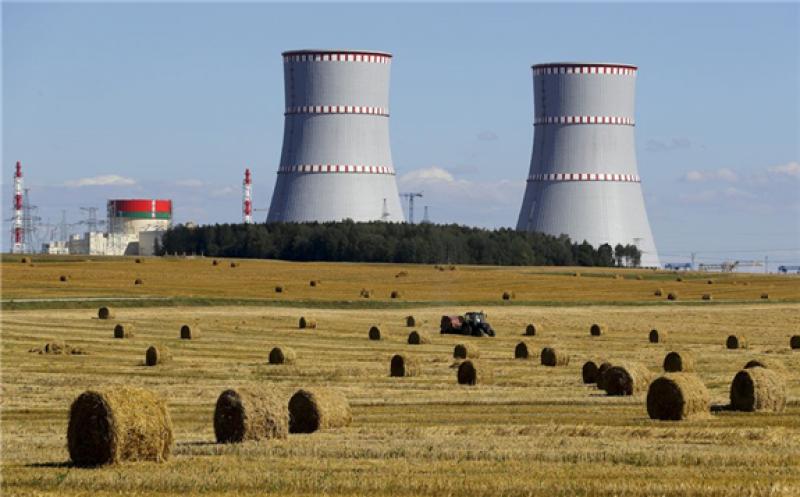The European Union’s energy commissioner said on Monday that officials will visit Belarus this week to carry out a previously planned safety review of the nation’s new power plant.
 The Astravets nuclear power plant. Photographer: Sergei Grits/AP
The Astravets nuclear power plant. Photographer: Sergei Grits/AP
The nuclear station has drawn criticism from neighboring Lithuania, part of the 27-member EU. Rosatom Corp., the Russian state company that’s building the 2,400-megawatt plant, rejected Lithuania’s allegations of safety issues, saying that the process of putting it into service now underway is on track and there have been no reportable incidents or accidents on the site.
The visit comes two days after EU leaders, responding to Lithuania’s concerns, underlined the importance of ensuring the plant meets safety standards and asked the European Commission to look into how to prevent the import of electricity from nuclear plants that do not fulfill EU-recognized regulations.
EU Energy Commissioner Kadri Simson announced that officials from the EU’s executive arm will participate this week in the review, which includes virtual meetings and a visit to the plant to check compliance with the recommendations from the European Nuclear Safety Regulators Group.
Experts from that independent advisory body, made up of senior regulatory officials, will also join.
Planned Visit
“The peer review at the Astravets plant should be completed as quickly as possible and throughout the process leading to the commissioning of the plant the highest safety standards must be ensured,” said Simson, who hails from Estonia, a Baltic country neighboring Russia.Findings will be published in early 2021, she said. The Belarussian Energy Ministry said on Monday that the visit was announced in October and is part of a peer review of the nation’s plan of actions following stress tests. The visit to the plant will take place Dec. 16-18, according to the ministry.
When asked on Monday about the visit, Rosatom said that it has been working closely with the International Atomic Energy Agency (IAEA) and the World Association of Nuclear Operators (WANO) to ensure that there are no doubts that all safety issues have been properly addressed.
“We are committed to the highest standards of transparency and have always provided all stakeholders with any and all information they might require on the design and progress of the project,” according to a statement by Rosatom’s press office.
Lithuanian officials had no immediate official comment on the planned review.
Lithuania’s Paper
Last week, Lithuania raised concerns about the plant in a policy paper circulated to EU member states ahead of the Dec. 10 leaders’ summit, alleging that the “quantity and frequency of the safety incidents indicate poor quality assurance and control in the earlier design, manufacturing and assembling stages as well as low operational safety.”
A harsh critic of the government in Minsk, Lithuania stopped power imports from Belarus after the plant began initial production last month.
Rosatom rejected Lithuania’s allegations. In a separate statement on Monday, it said the recent shutdowns at the plant are a routine part of the commissioning stage underway at Unit 1.
During that process, “the reactor power output is gradually increased and reduced back to zero multiple times,” Rosatom said. “The absence of power supply to the grid does not imply any emergency or incidents,” the company said, noting that commissioning is on schedule.
Rosatom also dismissed other alleged concerns raised by Lithuania about seismic risks at the location and reports of an accident during construction. It noted that the European regulators group gave the plant an “overall positive” report after the inspection. That document also cited “important recommendations that necessitate an appropriate follow up.”
Rosatom said there have been no accidents, incidents or nuclear safety reportable events, as defined by the IAEA, on the site.